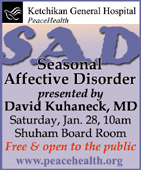 By MARK HUME Toronto Globe and Mail January 14, 2006
Trumpeter swans are the largest waterfowl species in North America. They usually announce their presence with sonorous trumpeting that has been compared to the baying of hounds. But the bird Sinclair found on the shallow lake in B.C's Fraser Valley was exhausted.
"There is this big, powerful bird, looking at you as if it expects you to kill it, but it doesn't have the strength to even try to get away. It laid its neck out on the ground and opened its beak, but it couldn't make a sound," said Sinclair, who picked the bird up and felt it die in his arms. "I have six- and eight-year-old boys who think this is normal, and that's just not right," he said, as he waited for Canadian Wildlife Service officials to stop by his Abbotsford farm to pick up half a dozen dead birds - his latest harvest of carcasses from Judson Lake, which appears to be at the center of a massive and sustained die-off of trumpeter swans. The emotional impact of that walk with his boys last Valentine's Day helps keep Sinclair going as he lobbies governments and spars with scientists to get action on a lead-poisoning problem that became apparent in 1999, when flocks of trumpeter swans died in the Fraser Valley and adjacent Washington State. Many of those birds - an estimated 1,700 over the past six years - died on Judson Lake, a shallow body of water that straddles the Canada-U.S. border near Abbotsford. Judson Lake, like other popular hunting lakes in the area, is polluted with lead shot that duck hunters have fired off into the sky over decades. Now widely banned, lead shot resides in soft bottom mud, where it is ingested by foraging swans wintering in the area. Studies have shown that as few as one or two of the small pellets can poison a bird. Sinclair has spent seven years campaigning for a cleanup without much to show for it. But he appears to be making headway this winter as an influential provincial politician, Intergovernmental Affairs Minister John van Dongen, and a powerful environmental conservation group, the B.C. Wildlife Federation, have recently added their weight to his cause. "There's a reason the swans are dying, and we've got to get to the bottom of this," Van Dongen said. "It's a tragedy." Van Dongen does not have any political jurisdiction over the lake, but he has used his office to prod the federal government to take action, and he recently urged the wildlife federation, which has more than 30,000 members, including many hunters, to get involved. The federation issued a call for "a binational cleanup effort and an international reclamation demonstration project." But scientists who have been studying the problem aren't certain where the birds are picking up the lead shot, with several lakes suspected. Sinclair said the Canadian Wildlife Service - part of Environment Canada - "is a bureaucracy that just doesn't seem to want to act. "I understand there is some debate over where the lead shot is coming from. But it's pretty obvious to me that Judson Lake is the epicenter of this die-off. They should start to clean it up, and if they say there is somewhere else that is more of a hot spot, well then start there. Start somewhere."
Publish A Letter on SitNews Read Letters/Opinions Submit A Letter to the Editor
|
||


